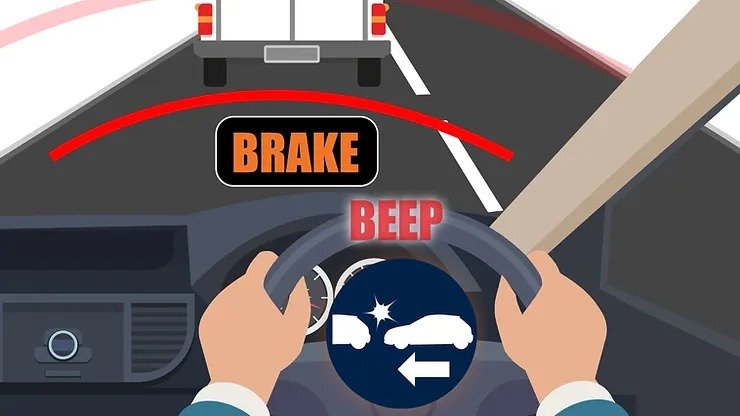Two faces of an emergency savior: There are two main types of emergency brakes:
Parking Brake: This familiar lever or button operates a separate set of cables and mechanisms to lock the rear wheels, keeping your car stationary, even on inclines.
Autonomous Emergency Braking (AEB): This newer technology uses sensors and radar to detect imminent collisions with vehicles or pedestrians. If the driver doesn’t react fast enough, AEB automatically applies the brakes, potentially avoiding or mitigating an accident.
How it works: A peek under the hood:
Parking Brake: Pulling the lever activates cables that pull levers on the rear wheels, engaging the brake shoes (drum brakes) or pushing pistons against the brake pads (disc brakes), effectively locking the wheels.
AEB: Sensors like radar and cameras constantly scan the road ahead. If a collision is imminent and the driver doesn’t brake sufficiently, the system initiates emergency braking, applying full or partial brake pressure depending on the situation.
Remember the golden rule: While the emergency brake can be a lifesaver, it’s not a magic bullet. Always remember:
Primary defense: Your main brakes are still your first line of defense. Maintain them regularly and practice safe driving habits.
Controlled panic: Stay calm in an emergency. Sudden, forceful use of the emergency brake can lock the wheels, causing skids and loss of control.
Know your system: Familiarize yourself with your car’s specific emergency brake operation and limitations.
Final thoughts: The emergency brake system is a silent guardian, ready to intervene when needed. Understanding its purpose and limitations can give you peace of mind and the confidence to handle unexpected situations on the road. So, the next time you hit the brakes, remember the unsung hero quietly standing by, ready to act in your moment of need.

